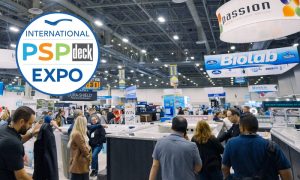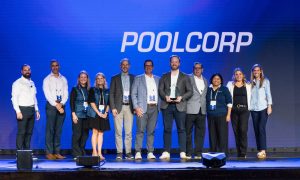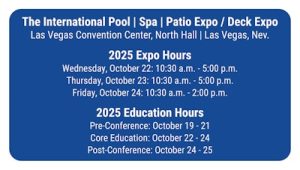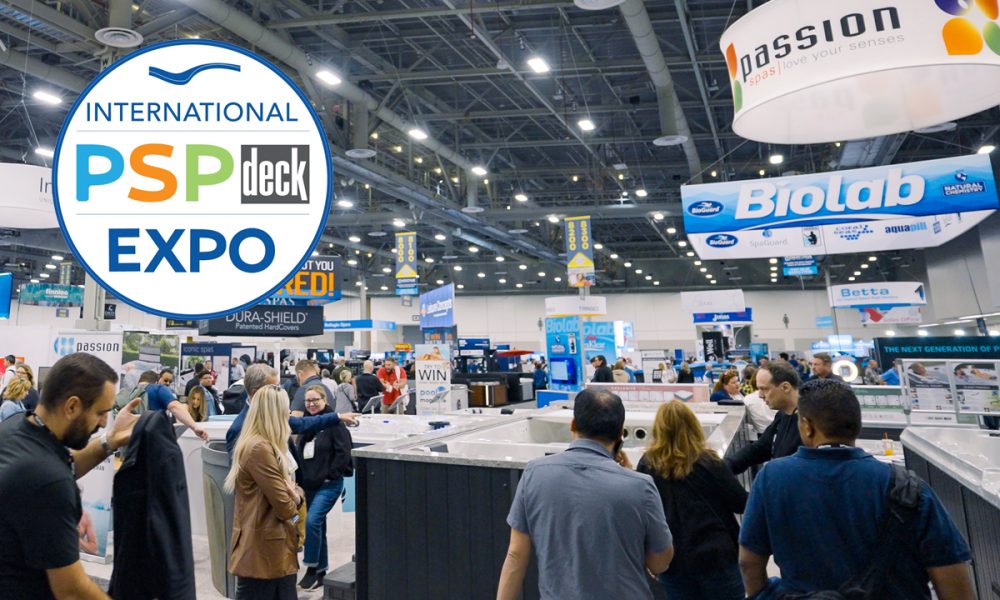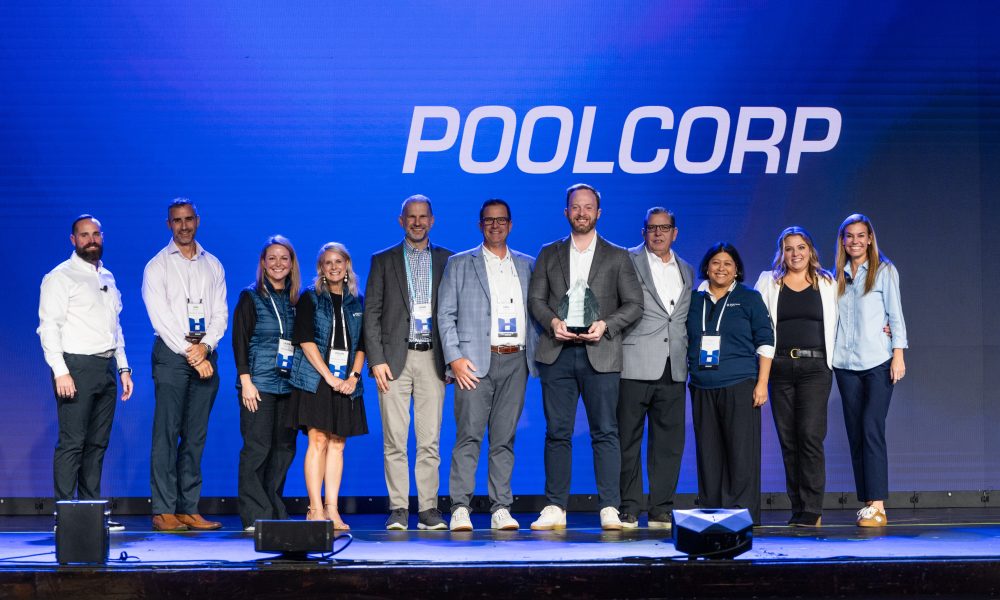We reported earlier this year on three rather important regulations that will shortly go into effect (two new California regs, and one national), but it’s been a busy summer for everyone, and who has time to keep track of things like new pool and spa regulations? AQUA, that’s who.
MAKING DEMAND FLEXIBLE
Let’s start with the California “Title 20 Flexible Demand Appliance Standards” or FDAS, that will go into effect at the end of this month, on September 29.
Context: California has longstanding electricity demand/consumption issues, and is trying to manage flow more efficiently. Peak electricity generation is very inefficient and expensive, and it causes more pollution than baseline energy generation. When demand soars above capacity, it can even cause blackouts, as history has shown.
To that end, California is taking the first steps to make pool equipment, and especially pool pumps (the second biggest electricity consuming appliance behind air conditioners) connect with utilities. Modern variable-speed pool pumps, with their scheduling and lowflow capabilities, have made this more feasible. This (currently opt-in) grid connection effort is in its infancy. It will take many years to build a critical mass of pools that are even able to participate in the program.
That said, this is the beginning of a new approach to energy consumption and pools, called “flexible demand” — allowing utilities to manage pump usage when necessary to soften demand spikes and more efficiently control flow of electricity through the grid. Utilities want pools to avoid drawing amps at a time when electricity demand is at its highest, typically 4 to 9 p.m., but this varies.
Some California utilities use surge pricing, so pool owners who volunteer for the new system would automatically avoid surge electricity usage and thus, would see a cost break in their utility bills.
The process will officially begin in California late this month. Manufacturers will certify that pool equipment that can:
- support two-way communication between the equipment and user so they can start or stop equipment operation at any time,
- operate using a 9 a.m. to 3 p.m. default operating schedule; and
- communicate wirelessly with utilities and any other entities.
There has been some confusion and rumor surrounding FDAS, so a couple points bear repeating:
- At this point, the state is just setting up the capability to enact a plan for the future. Once the infrastructure is in place, consumers who opt-in will have pool and spa equipment that can send and receive signals from utilities or, as the regulation states, “third-party entities.” Once this step is complete, when the state wants to start flexible demand programs and third-party remote control, the pieces will be in place to do it — products that can connect.
- Actual remote control of the enormous pool population of California will not begin in September. Even a year from now, only a small percentage of pools in California (new installations of FDAS-compliant pool equipment) will have the capability for remote control.
Again, flexible demand is a new concept in pool regulation, and there’s much work to be done to educate and implement a plan on this scale. If it works — if it produces consumer savings on utility bills, helps avoid costly blackouts and the construction of new power plants — it’s reasonable to think that, like other California pool and spa initiatives, it could spread to other states in the Union. California pool and spa laws have a long history of making their way, in some shape or form, to the rest of the Union.
At the moment, for builders, service pros and retailers, there’s nothing to do to get ready for FDAS. Manufacturers have the action item.
GAS IS GOING AWAY FOR NEW INSTALLS
This is also California only: On January 1, 2026, gas heat is going away for new installations.
Simply put, gas will no longer be allowed as the primary heating source for pools and spas adding a heater for the first time (a heater on a new pool or a heater being added to an existing pool for the first time). That’s the bottom line.
The replacement market is untouched. That is, any pool replacing an existing heater does not need to meet the requirements. Simple.
So again, after January 1:
New build, new equipment – new code compliant.
New heater being added to an existing pool that’s not heated – new code compliant.
Replacement heater – need not comply.
And what kind of heat energy source is compliant and can be used for new installs?
There are three available options:
- Solar thermal
- Heat pumps
- Heat recovery systems (like geothermal and similar systems. Less common, but they exist.)
So again: Is gas being banned?
No. The vast majority of heaters in California are gas and these will continue to heat water for a long time. They can even be replaced with another gas heater. What you cannot do is put in a new gas heater where there wasn’t one.
WHAT ABOUT SINGLE-SPEED POOL PUMP MOTORS?
Those paying attention will be wondering what is happening to the long-discussed new U.S. Department of Energy (DOE) regulation for pool pump motors (the DOE calls these items “dedicatedpurpose pool pump motors” (DPPPMs).
Most people will remember the July, 2021, DOE regulation that ended production of most single-speed pool pumps in the inground residential market. But the old and inefficient pump motors that drove their impellers are still on sale and used for replacement, thus defeating the purpose of the rule. That loophole has been open for over four years. The new DPPPM regulation seeks to close it.
This new DPPPM regulation is scheduled to go into effect September 29. As of the writing of this article, however, the matter is slightly hazy.
Unlike the aforementioned California laws, this is a federal law, which means that it’s under review in the U.S. government’s effort to streamline regulatory burdens on small business.
As of this writing, there has been no edict or announcement to countermand implementation of this standard. While some other standards have been changed or rolled back, this one remains on the books. However, it is possible DOE-DPPPM could be altered or even eliminated before it goes into effect. Litigation could also cloud the issue until it’s resolved in the courts. But as of the latest post by the DOE on August 4, it is scheduled to take effect September 29.
This new regulation will occur in two phases. Phase 1 begins on September 29, 2025, and Phase 2 begins exactly two years later in 2027. See the box below for what is covered.
This change will affect service techs in the U.S. who replace old-style singlespeed pump motors, like with like. You know who you are. After September 29, if current law holds, manufacturers will stop making these replacement pump motors, and they will all slowly wear out and disappear from distributor shelves, and be cast into the dustbin of history.
In summary: On September 29, manufacturers must cease production of non-compliant single-speed and two-speed pump motors. Service personnel need not do anything — this is just notification that such pump motors will slowly become unavailable. If it happens. It looks like it probably will.
This article first appeared in the September 2025 issue of AQUA Magazine — the top resource for retailers, builders and service pros in the pool and spa industry. Subscriptions to the print magazine are free to all industry professionals. Click here to subscribe.

